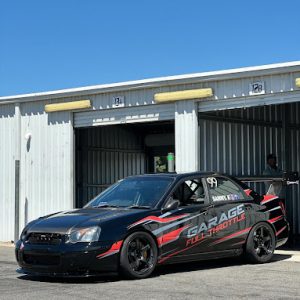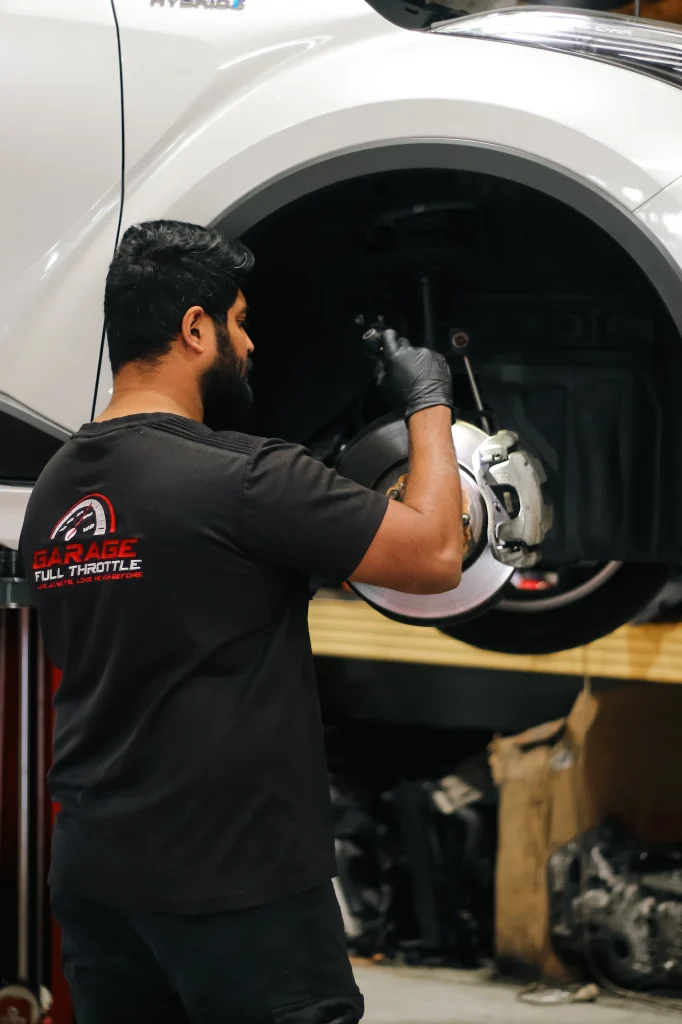Is your roadworthy certificate (RWC) appointment coming up and you’re worried about unexpected repair costs? You’re not alone. Many Melbourne drivers face the frustration of failed roadworthy inspections, leading to expensive repairs and reinspection fees. The good news? Many common RWC failures can be fixed yourself for a fraction of the cost. This comprehensive guide shows you exactly which DIY checks and repairs you can tackle before your RWC appointment, potentially saving hundreds of dollars while ensuring your vehicle passes on the first attempt.
Understanding RWC Requirements and Common Failures
What Gets Checked During a Roadworthy Inspection?
Before diving into DIY solutions, it’s crucial to understand what inspectors examine during your roadworthy certificate assessment. While not exhaustive, these are the most common failure points that catch drivers off guard:
- Lighting systems (all external and indicator lights)
- Tyres and wheels (tread depth, condition, alignment)
- Steering components (bushings, power steering, joints)
- Windscreen and windows (visibility, tinting, damage)
- Warning lights (SRS, airbag, engine lights)
- Structural integrity (rust, corrosion, body damage)
- Fluid leaks (oil, transmission, power steering)
Understanding these inspection points helps you focus your pre-inspection efforts where they matter most.
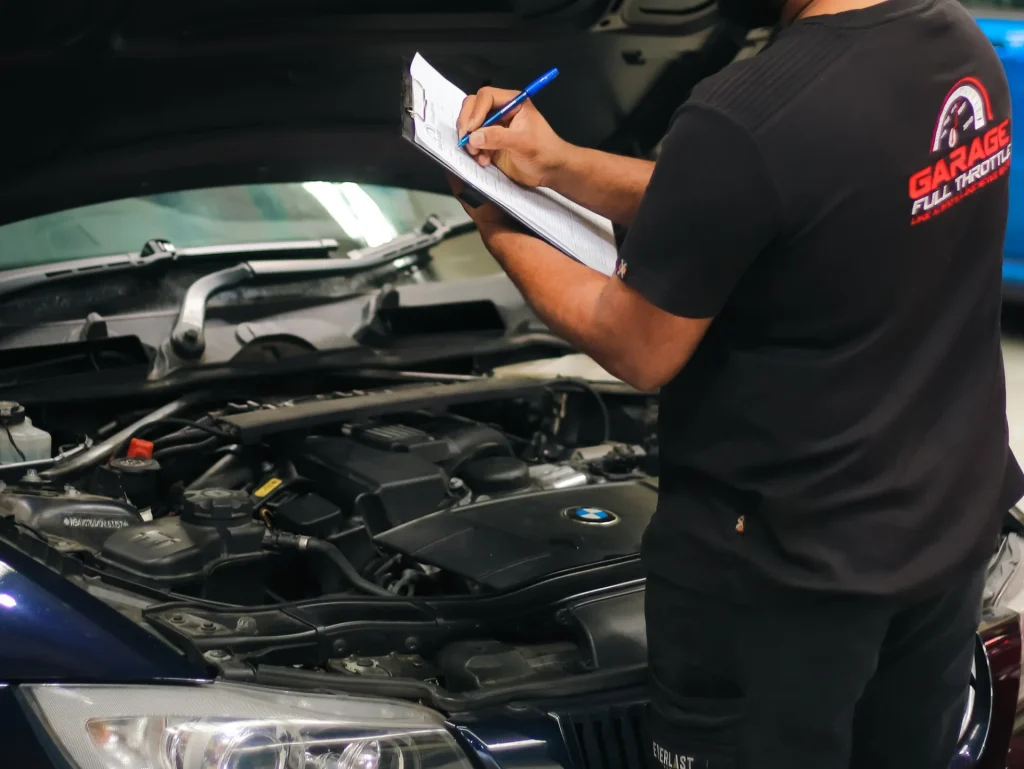
Simple DIY Checks That Save Big Money
Lighting System Inspection and Repairs
Cost to fix at mechanic: $50-200 per light assembly
DIY cost: $5-30 per bulb
Your vehicle’s lights are the easiest and cheapest components to check and fix yourself. Here’s your complete lighting checklist:
What to check:
- Headlights (high and low beam)
- Tail lights and brake lights
- Indicator lights (all four corners)
- Number plate lights
- Reverse lights
- Fog lights (if fitted)
- Interior dashboard illumination
Common issues and DIY fixes:
- Blown bulbs – Simply replace with matching bulb type (check owner’s manual)
- Hazy headlights – Use headlight restoration kit ($20-30)
- Cracked lens covers – Apply clear tape temporarily or replace assembly
- Non-functioning fog lights – Check fuses first, then bulbs
Pro tip: Have someone help you check brake lights and indicators, or use a reflective surface like a shop window to check them yourself.
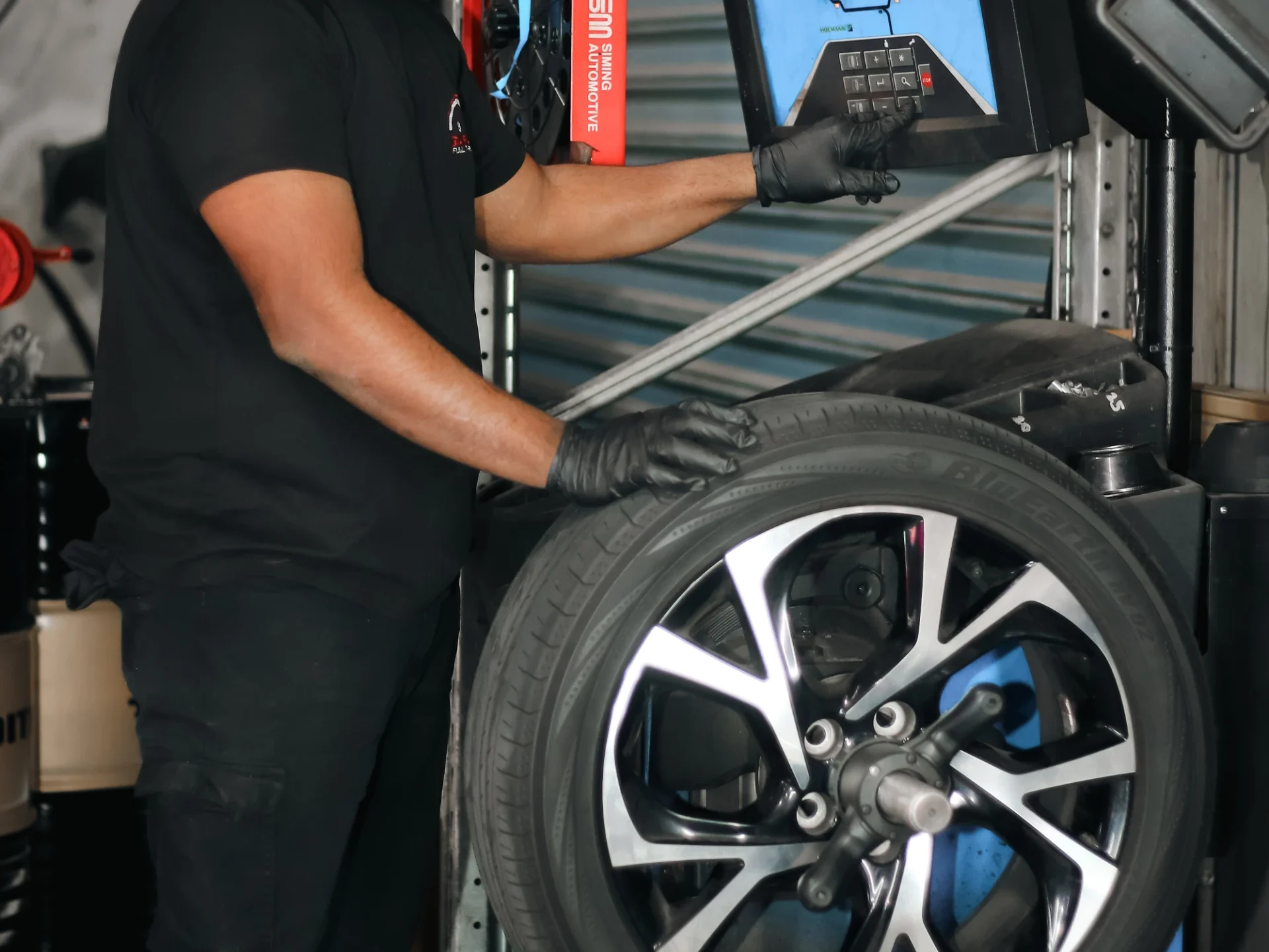
Tyre Inspection and Maintenance
Cost at tyre shop: $100-300 per tyre
DIY checks: Free (just your time)
Tyres are a major RWC failure point, but many issues can be spotted early:
Critical checks:
- Tread depth must be minimum 1.5mm (use a 20-cent coin – if you can see the bill’s band, it’s too worn)
- Uneven wear on inner/outer edges indicates alignment issues
- Heat cracks or age deterioration (common on vehicles sitting idle)
- Sidewall damage or bulges
What you can do:
- Rotate tyres if wear is uneven but adequate
- Check and adjust tyre pressure to manufacturer specifications
- Clean tyres to make inspection easier
- Schedule replacement before RWC if clearly worn
Windscreen and Window Assessment
Professional repair cost: $200-800
DIY fixes: $20-100
Quick inspection guide:
- Primary vision area (wiper sweep zone) must be free from:
- Cracks longer than 150mm
- Bull’s-eyes or star fractures over 16mm diameter
- Chips that could damage wiper blades
DIY solutions:
- Small chips – Use windscreen repair kit ($15-30)
- Bubbled tinting – Remove old tint with heat gun and razor blade
- Wiper streaking – Replace wiper blades ($20-40 pair)
Important: Major windscreen cracks require professional replacement, but catching chips early saves hundreds.
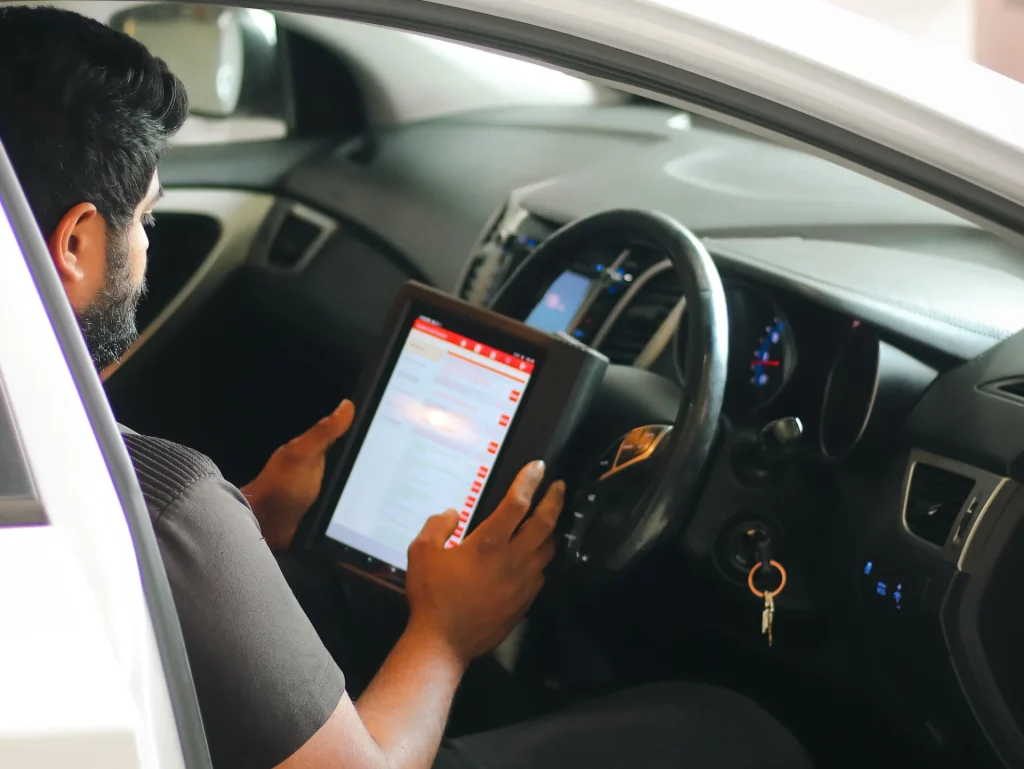
Intermediate DIY Repairs
Dashboard Warning Light Resolution
Mechanic diagnostic fee: $100-150
DIY approach: Often free
Warning lights = automatic RWC failure. Before paying for diagnostics:
- Check your owner’s manual for reset procedures
- Disconnect battery for 30 minutes (resets some systems)
- Use free OBD2 scanning at auto parts stores
- Address simple causes:
- Low brake fluid (top up)
- Loose fuel cap (tighten)
- Low tyre pressure (inflate)
Addressing Minor Oil Leaks
Professional repair: $200-1000+
DIY temporary fixes: $10-50
While major leaks need professional repair, you can address minor seepage:
- Clean engine bay thoroughly to identify leak source
- Tighten loose connections (oil pan bolts, filter housing)
- Replace worn gaskets on accessible components
- Use leak-stop additives for minor seepage (temporary solution)
Note: Significant leaks require proper repair, but cleaning existing oil residue prevents automatic failure for old stains.
Rust and Body Inspection
Professional rust repair: $300-2000
DIY prevention: $30-100
Check for:
- Paint bubbles that split the surface
- Excessive corrosion around wheel wells
- Structural rust on chassis points
DIY approach:
- Surface rust – Sand, prime, and paint small areas
- Paint bubbles – Sand down and treat before they worsen
- Preventive cleaning – Remove dirt/salt buildup in wheel wells
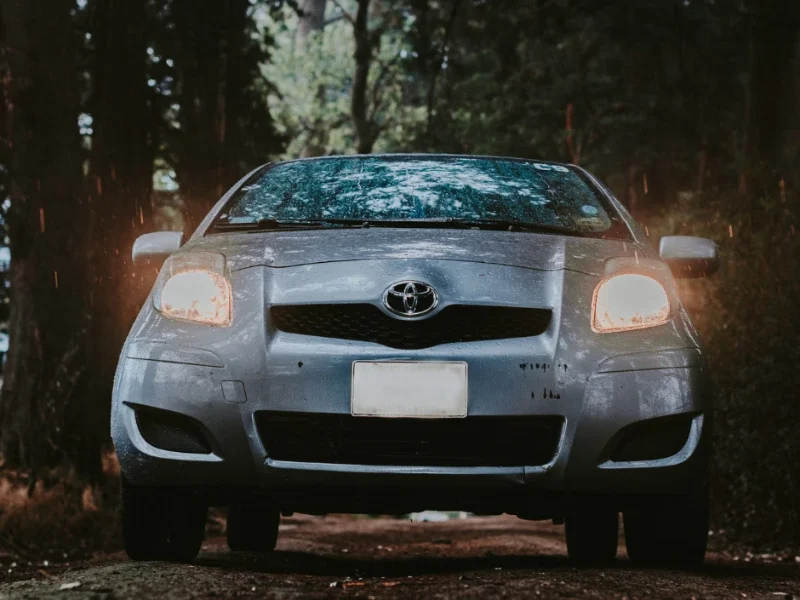
Money-Saving Pre-RWC Checklist
One Week Before RWC
- Test all lights with a helper
- Check tyre tread depth and pressure
- Inspect windscreen in good lighting
- Look for obvious oil leaks under vehicle
- Test windscreen wipers and washer fluid
- Check for dashboard warning lights
- Examine tyres for cracks or damage
48 Hours Before RWC
- Replace any blown bulbs
- Top up all fluids (oil, brake, power steering)
- Clean engine bay if oil residue present
- Remove or repair damaged window tinting
- Replace worn wiper blades if needed
Day of RWC
- Final light check
- Ensure spare tyre is properly inflated
- Remove any aftermarket modifications that might cause issues
- Clean vehicle (easier for inspector to check)
Cost Comparison: DIY vs Professional Repairs
| Repair Type | DIY Cost | Mechanic Cost | Potential Savings |
|---|---|---|---|
| Headlight bulb replacement | $10-30 | $50-100 | $40-70 |
| Wiper blade replacement | $20-40 | $60-80 | $40-40 |
| Minor windscreen chip repair | $20-30 | $150-200 | $130-170 |
| Window tint removal | $20 (supplies) | $100-150 | $80-130 |
| All lights check/replace | $50-100 | $200-400 | $150-300 |
When NOT to DIY: Safety Considerations
While many pre-RWC checks save money, some repairs require professional attention:
- Brake system repairs (beyond fluid top-up)
- Steering component replacement
- Suspension work
- Major oil leaks from engine or transmission
- Structural rust or damage
- Airbag or SRS system faults
These safety-critical systems need qualified mechanics to ensure proper repair and your safety.
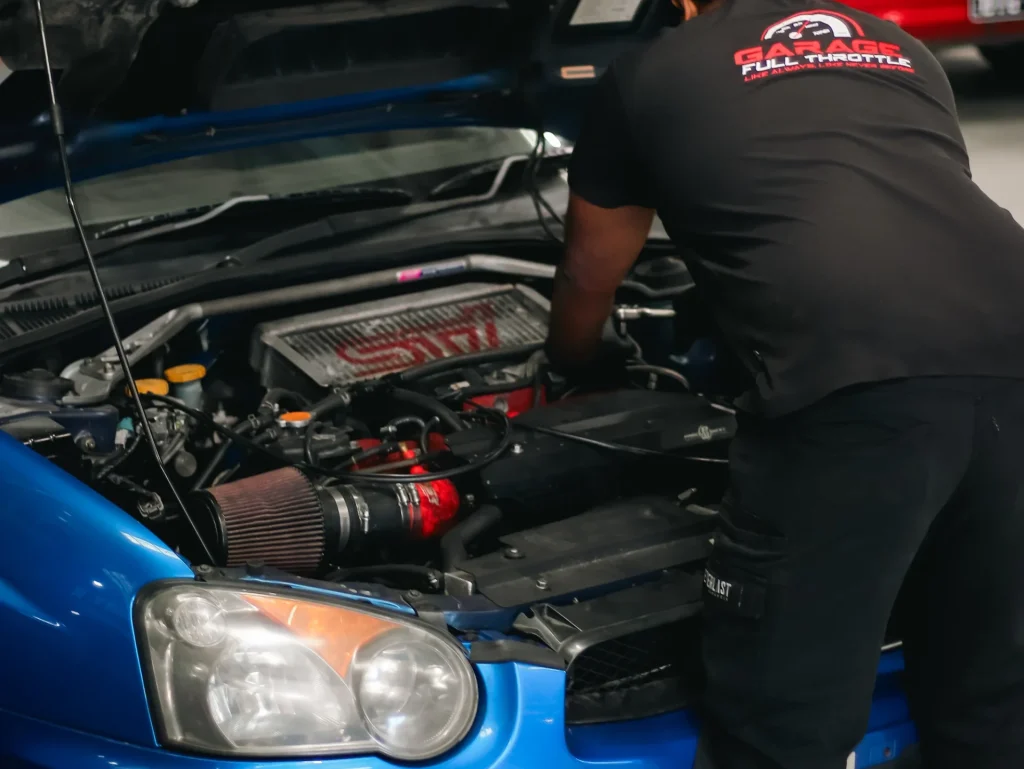
Professional RWC Services: When You Need Expert Help
After completing your DIY checks, you might still need professional assistance. At Garage Full Throttle, we provide comprehensive RWC inspections throughout Melbourne’s northern suburbs including Craigieburn, Wollert, and surrounding areas.
Our RWC service includes:
- Complete 40-point safety inspection
- Detailed report of any issues found
- Honest advice on necessary repairs
- Competitive pricing on required fixes
- Same-day service availability
If your vehicle fails despite your preparation, we offer transparent quotes and can complete most repairs on-site, saving you time and reinspection fees.
Key Takeaways
Successfully passing your RWC doesn’t have to drain your wallet. By investing a few hours in these simple DIY checks, you can:
- Save $200-500 on minor repairs
- Avoid reinspection fees by passing first time
- Identify major issues early for better planning
- Maintain your vehicle more effectively year-round
Remember, these pre-inspection checks aren’t just about passing your RWC – they’re about ensuring your vehicle’s safety and reliability. Start your inspection at least a week before your appointment to allow time for any necessary repairs.
Need professional RWC services or have questions about your pre-inspection findings? Contact Garage Full Throttle today. We’re here to help you get back on the road safely and affordably, whether you need a simple roadworthy certificate or comprehensive vehicle servicing.
